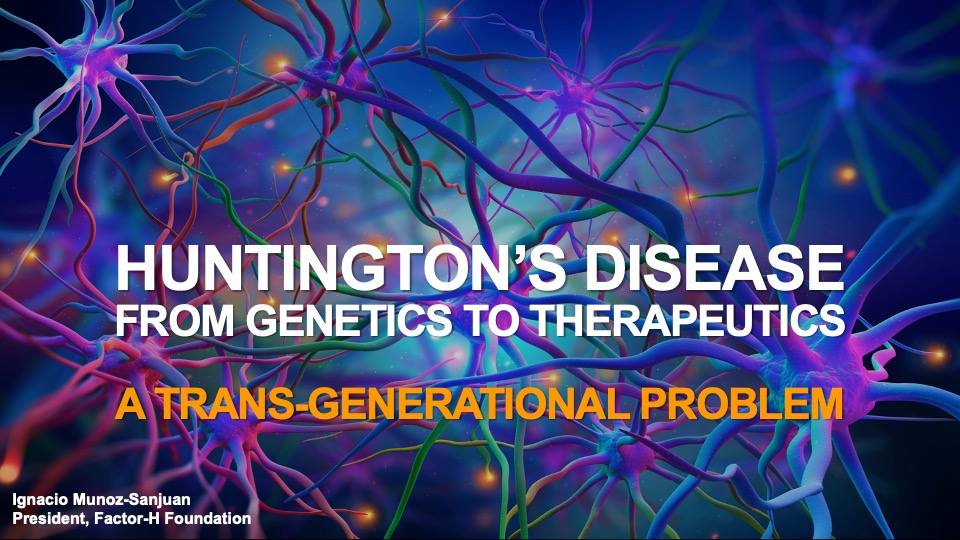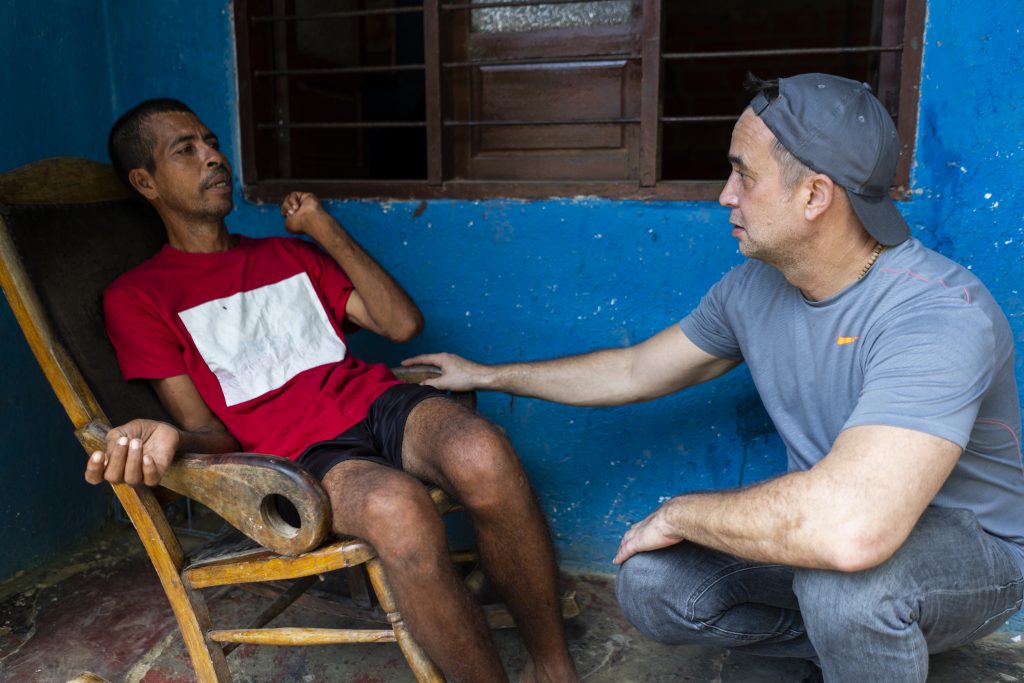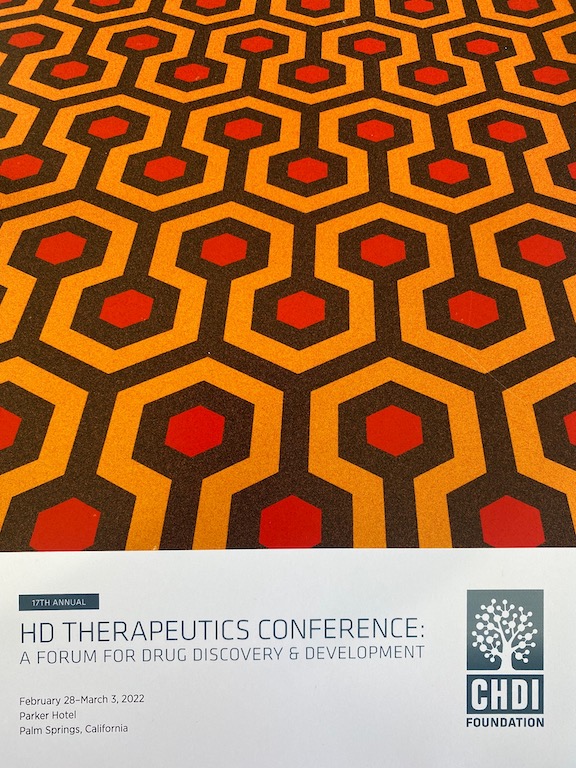Gratitude Day – Video interviews from Spain

Ruth Blanco, president of the HD association in Spain & coordination of the European Huntington’s (EHA) program ‘Moving Forward‘ for Spain, conducted a series of interviews to support Factor-H Gratitude Day campaign. Ruth interviewed several scientists and family advocates from Europe, the USA and Venezuela, including Ignacio Muñoz-Sanjuán, to discuss what the identification of the […]
Seminario del Dr. Muñoz-Sanjuán en la reunión de la sociedad de Neurología venezolana

Seminario del Dr. Ignacio Muñoz-Sanjuan, fundador de Factor-h, en la reunión anual de la sociedad venezolana de neurología, el 3 de junio 2023. Ignacio habla sobre programas terapéuticos actuales para la enfermedad de Huntington, comentando información actual de todos los programas sintomáticos y aquellos dirigidos a disminuir la expresión de la proteína Huntingtina, en fases […]
In Memoriam, Dilia Oviedo

Dilia was born in San Martin of Loba, a municipality located north of the department of Cesar, Colombia. Her parents were Florentino and Ernestina. She met her husband, Valentin, who was also her cousin, at a dance when she was young, and they felt immediately in love. They had twelve children, although one of them […]
GRATITUDE DAY 2023

Gratitude Day 2023 was a success! The gratitude day campaign was adopted by many families, patient associations, friends of HD families, clinicians and scientists working on behalf of HD families. Below you can see a video of all the social media posts from these special and caring individuals who joined efforts to say ‘thank you’ […]
Factor-H featured in the Moving Along magazine of the Movement Disorder Society

The work Factor-H implements in Latin America is being recognized by the Movement Disorder Society, the main neurology association that deals with all aspects clinical and scientific with movement disorders. In their February 2023 issue of their magazine, Moving Along, Factor-H 2022 HD conference was highlighted. PLease take a look and read this article about […]
The hidden work of Factor-H – the story of Nelson

Nelson Echeverría is 49 years old and he is one of the HD individuals we assist. He is a wonderful person and always receives our social workers with a big smile. He lives in the outskirts of the town of Saco in the Atlántico department in Northern Colombia. He lives in very impoverished conditions and […]
Here is how you too can help! Thanks Ivan Angulo!

Everyone can make a contribution to help those most affected by Huntington’s disease. In this brief post, we wanted to thank Dr. Iván Angulo for his commitment to rare disorder research. Iván is a former colleague of Nacho who reached out to raise funds for our Venezuelan colleagues suffering from HD. He decided to raise […]
CHDI conference session V – updates on the DBS clinical trial

Jan Vesper, Dusseldorf University Jan Vesper spoke on the status update of the recently completed European randomized-controlled DBS trial of the globus pallidus (GP) for the treatment of HD (HD-DBS study). Prior work done in a pilot study in 2014 showed a significant reduction in chorea scores of the UHDRS. This prior small trial (n=6) […]
CHDI conference session V – clinical updates from Uniqure AMT-130 program

David Cooper David Cooper from Uniqure spoke about the current status and future plan for the first gene therapy trial for HD involving an AAV5 expressing a microRNA targeting HTT human exon-1 sequences, termed AMT-130. David described the preclinical work conducted to support the clinical trial data, in work that is largely published. Ongoing studies […]
CHDI Conference Session V – Clinical trial updates

Drs. Lauren Boak and Peter McColgan (Roche) Drs. Lauren Boak and Peter McColgan discussed additional results from the tominersen Generation-HD1 phase III trial. Lauren spoke about the on-treatment and post-treatment effects of tominersen, both during the Phase III study and other studies involving this drug, with the focus of dose selection and patient population for […]
